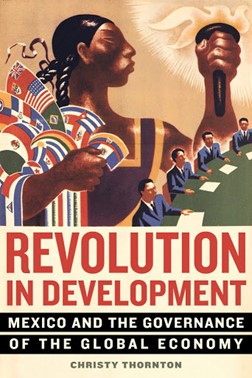|
|
|
|
The weekly newsletter of the México Solidarity Project |
|
|
|
December 2, 2020/ This week's issue/ Meizhu Lui, for the editorial team
When Things Go Splat
Ever juggle eggs? You need a plan and lots of skill. Or else you get lots of splats. Claudia Scheinbaum, the mayor of México City who we feature in this week’s Voices, may well feel like she’s juggling eggs. Homelessness. Unemployment. Overcrowded schools. Pollution. Crime. Traffic. Things don’t just go splat when these “eggs” drop. They ruin lives.
Then, suddenly, an extra dinosaur egg gets tossed into the mix: Covid-19. No one saw that coming, certainly not Mexican President Andrés Manuel López Obrador. He went into crowds, mask-less, and downplayed the pandemic’s seriousness. Scheinbaum has been AMLO’s personal friend and trusted advisor. She backs him fully but not blindly. A scientist herself, Scheinbaum suspected early on that Covid posed a catastrophic threat — and acted accordingly. She instituted mask wearing in her city’s crowded buses, conducted tests and tracing, and found ways to gather up badly needed ventilators and ICU beds.
In México today, more than Covid is ending lives prematurely. The number of Mexican women murdered has been rising year by year, with over 3,000 deaths in 2019 alone. These numbers — and the failure to bring perpetrators to justice — have enraged women, including Scheinbaum, herself a woman who's been threatened with violence. Amid the protests that have erupted all over México, she's placing the highest priority on enabling women and girls to live without fear. AMLO’s response, in contrast, has been tepid.
AMLO himself served as mayor of México City and earned people’s trust in that role. As president, he has provided financial help from above that matters to real people, increased scholarships for public school students, for instance, and pensions for elders. But AMLO is also dropping eggs. In México City, Claudia Scheinbaum is picking up the pieces.
Isn’t that what women always do when things go splat? |
|
|
Claudia Sheinbaum became mayor of México City in 2018, sweeping into office with that year’s progressive electoral wave. A scientist and environmentalist, she jointly received the Nobel Peace Prize in 2007 as a member of the UN’s Intergovernmental Panel on Climate Change. |
|
|
México City has become one of six metropolises worldwide now sharing solutions to crises that disproportionately impact women. Their cooperative vehicle, the City Hub and Network for Gender Equity or CHANGE for short, is working to keep each city energized about helping women and their children become physically and financially secure. Christiane Amanpour recently interviewed two of the six mayors, México City’s Sheinbaum and London’s Sadiq Khan, for CNN. We’ve edited here their full exchange.
Christiane Amanpour: How has COVID affected the women of your city? Cluadia Scheinbaum: They have suffered the most. A major issue is that since they must stay at home, especially if they have children, the violence that takes place inside their own houses — abuse and even murder — has grown. Sadiq Khan: COVID has not been the great equalizer. In fact, it has amplified existing inequalities, including between men and women.
What steps have you taken to protect women in this time? CS: We created an agenda to reduce violence against women. We now have a rule that the aggressor must leave the house, even if he owns it. There is a registry for sexual offenders [editor's note: and also a new group of 100 women lawyers giving women free legal advice and helping them file reports]. Since the well-being of women is tied to that of their children, México City is providing food support for all children between the ages of 3 and 15, 1.2 million children! SK: We’ve increased women’s shelters and have targeted 3 million pounds to re-skill and up-skill women, since we found that women were 50 percent more likely to have lost their jobs due to COVID, and 8 out of 10 work in lower paid jobs in any case.
CA: Yes, what about jobs and pay? How are you addressing the gender pay gap? SK: Without transparency, the facts are hidden. I published the salaries of public officials, and we found that men dominated higher paid positions. We appointed more women to top jobs, including the police chief. These women will set an example for others, because “you can’t be it if you can’t see it.” CS: Setting examples is very important. It’s not just making new laws and regulations. In México under AMLO, half of the Cabinet members are women.
CA: Do you think a Biden Presidency will make a difference to your agendas? SK: In Europe we are excited that the US will become allies once more on critical matters like the Paris Climate Accords. CS: We remain concerned about the millions of Méxicanos living in uncertainly in the US. México must defend our people no matter where they live. |
|
|
Christy Thornton, the former executive director of the North American Congress on Latin America (NACLA) and a current faculty member at Johns Hopkins University, didn’t set out to become an expert on México. Her original interest had been researching Latin America’s history with international financial institutions and Latin American ideas about development. But Mexican officials kept showing up in the course of Thornton’s research, and she set out to understand why Mexican officials have played such important roles at crucial moments of international change. Out of that has come her new book, Revolution in Development: Mexico and the Governance of the Global Economy, a work that Thornton describes below. |
|
|
A Vision that Transcended Developmental Boundaries
Who governs the global economy? Who establishes the agenda, makes the decisions, and structures the institutions that set the rules of the game? According to the conventional wisdom, such governance has been largely the purview of the most powerful nations and empires in the world. Rich countries set the rules, and the poorer and weaker ones are compelled to follow them.
In this story, the idea that a country like México could influence the governance of the global economy seems a dubious proposition. Wracked by devaluations and debt crises, México experienced a thorough reorientation of its economy in the last decades of the twentieth century, as the United States and international financial institutions prescribed privatization, liberalization, and austerity as conditions for debt relief. …. What role could such a country play on the world stage?
Against the conventional narrative, this book presents the little-known history of how officials in Mexico seized moments of profound international change during the twentieth century to assume a leadership role in the struggle for a different kind of world economic order. |
|
The Mexican vision for global economic governance was one that afforded representation to the countries of what would become the Global South and enabled redistribution of the surplus capital of the Global North. As they looked to reconstruct their war-torn country in the aftermath of the twentieth century’s first social revolution, Mexican leaders quickly came to understand that their national economic progress was deeply dependent on the rules and institutions that governed global capitalism, and they therefore set out to change those rules to favor their country and others like it. In so doing, they advanced early demands for institutions to promote international economic development — and compelled the powerful countries of the world to respond. |
|
|
They argued for new multilateral agreements, outlined innovative new international institutions, and fought during crucial global negotiations for both the rights of the poorer states and the duties of the richer ones. This fight, waged over more than five decades, was Mexico’s revolution in development…
México put forward a vision that transcended the boundaries of the national developmentalist project, seeking not just to transform the domestic economy but to devise new rules and institutions for managing the global economic systems into which Mexico was increasingly integrated. It is a dream that still echoes to this day: that the global capitalist economy, managed under the proper institutions and rules, could allow the poorer, weaker, indebted countries of the world to overcome their structural disadvantages and enjoy a share of the returns of capitalist progress…
However, the unintended consequences of Mexico’s vision need to be underscored, as the pursuit of this dream ultimately led its leaders to defend precisely the institutions that would be used to dismantle the country’s state-led developmentalist project during the crisis of the 1980s. This history, then, should serve as a cautionary tale for today’s dreamers. |
|
|
Recent news reports and commentaries, from progressive and mainstream media,
Arturo “Tootie” Alvarez, 2020 in the Rearview: Reflections From an Essential Worker, Latino Rebels. Essential workers don't choose to sacrifice their health for their neighbors. The more accurate appraisal: Essential workers have become the neighbors our society is willing to sacrifice.
Peter Davies, AMLO insists that Mexicali brewery will never operate, México News Daily. AMLO has revoked permits for an American company after 76 percent of voters deemed the controversial project a threat to the local water supply.
Marissa Lang, Mexican feminists occupy federal building, create shelter, demand officials end violence against women, Washington Post. The machismo that runs through Mexican society, activists charge, last year spurred a record 3,142 femicides, the killing of girls and women for their gender.
Johanna Ferreira, Murder at the Border: How the U.S. & Mexico Turn a Blind Eye to Femicide. HipLatina. News reports never dig into how femicide has become systematic, especially in border towns, where many immigrant women live in vulnerable conditions.
Removing president’s protection from prosecution advances with Senate vote, México News Daily. The Senate has approved a constitutional reform that eliminates legal immunity for a Mexican sitting president. The measure now moves to state legislatures for ratification.
Rolando Ramos, AMLO ganaría referéndum y elecciones presidenciales, una vez más, El Economista. Aprobación AMLO noviembre: 58.4%.
Manuel Aguilar Mora, México: el regreso del general, sinpermiso. El regreso del general Cienfuegos es para el gobierno de la “Cuarta Transfornación” una nueva cruz. |
|
|
The Mexico Solidarity Project brings together activists from various socialist and left organizations and individuals committed to worker and global justice who see the 2018 election of Andrés Manuel López Obrador as president of México as a watershed moment. AMLO and his progressive Morena party aim to end generations of corruption, impoverishment, and subservience to US interests. Our Project supports not just Morena, but all Mexicans struggling for basic rights, and opposes US efforts to undermine organizing and México’s national sovereignty.
Editorial committee: Meizhu Lui, Bruce Hobson, Bill Gallegos, Sam Pizzigati. We welcome your suggestions and feedback. Interested in getting involved? Drop us an email! |
|
|
|
Web page and application support for the México Solidarity Project from NOVA Web Development, a democratically run, worker-owned and operated cooperative focused on developing free software tools for progressive organizations. |







